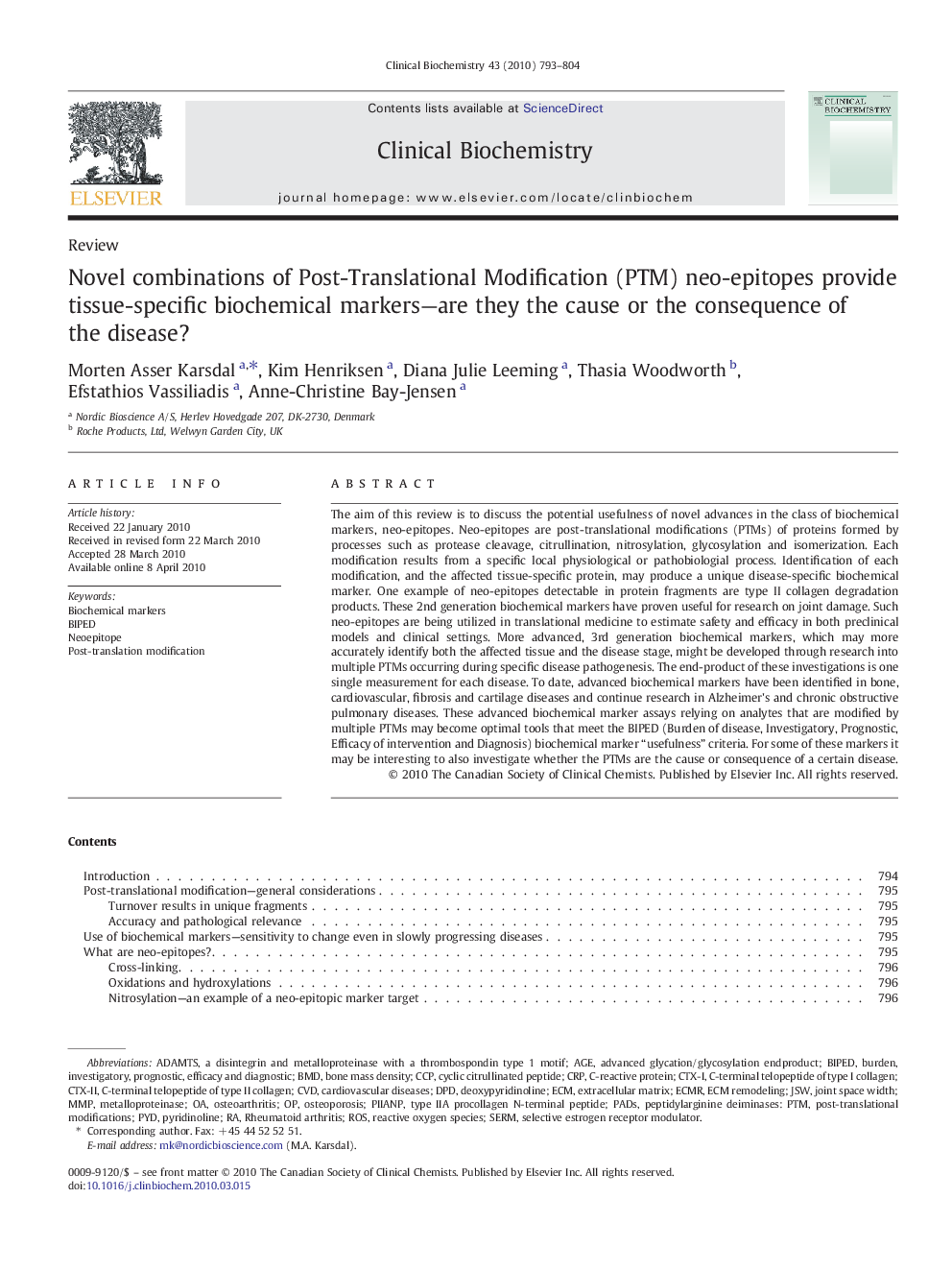| Article ID | Journal | Published Year | Pages | File Type |
|---|---|---|---|---|
| 1969665 | Clinical Biochemistry | 2010 | 12 Pages |
The aim of this review is to discuss the potential usefulness of novel advances in the class of biochemical markers, neo-epitopes. Neo-epitopes are post-translational modifications (PTMs) of proteins formed by processes such as protease cleavage, citrullination, nitrosylation, glycosylation and isomerization. Each modification results from a specific local physiological or pathobiologial process. Identification of each modification, and the affected tissue-specific protein, may produce a unique disease-specific biochemical marker. One example of neo-epitopes detectable in protein fragments are type II collagen degradation products. These 2nd generation biochemical markers have proven useful for research on joint damage. Such neo-epitopes are being utilized in translational medicine to estimate safety and efficacy in both preclinical models and clinical settings. More advanced, 3rd generation biochemical markers, which may more accurately identify both the affected tissue and the disease stage, might be developed through research into multiple PTMs occurring during specific disease pathogenesis. The end-product of these investigations is one single measurement for each disease. To date, advanced biochemical markers have been identified in bone, cardiovascular, fibrosis and cartilage diseases and continue research in Alzheimer's and chronic obstructive pulmonary diseases. These advanced biochemical marker assays relying on analytes that are modified by multiple PTMs may become optimal tools that meet the BIPED (Burden of disease, Investigatory, Prognostic, Efficacy of intervention and Diagnosis) biochemical marker “usefulness” criteria. For some of these markers it may be interesting to also investigate whether the PTMs are the cause or consequence of a certain disease.
